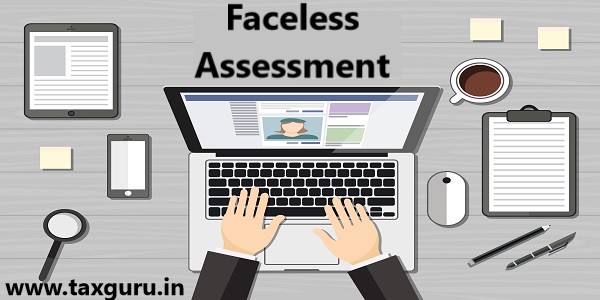CBDT had earlier this month notified the National e-Assessment Centre (NeAC) for all communications with the taxpayers under the faceless assessment scheme. Under the new system, taxpayers need to not to physically visit their regional jurisdiction tax officers or the IT department on receiving income tax scrutiny or assessment notices.
The CBDT has also notified that the cases related to domestic transfer pricing cases too will be covered under the faceless assessment mechanism maintaining that the earlier notices will not become redundant merely since the manner of assessment has been changed.
Now, an intimation would be sent out to the assessee that his/her case would now be assessed under the faceless scheme and if the Assessing officer of the Assessment unit feels that he needs some more intimation, he will send a fresh notice under section 142 of the Act 1961.
For those unknown, under section 142 of the Income Tax Act 1961, a notice is sent to an assessed to inquire about details and documents before assessing the Income Tax Act.

What does the Faceless Assessment Scheme provide for?
Under the faceless Assessment, a central computer automatically selects one or more tax returns for scrutiny based on risk parameters and mismatches and then allots them randomly to a team of officers.
Further, such allocation is examined and transferred at a randomly selected place, and only if agreed, a notice is sent by the centralized computer system. Thus, all such notices are required to be replied electronically without any physical prosecution or attendance or any need to visit a tax office or meeting any official.
Earlier on the occasion of Independence Day 2020 in August, Prime Minister Narendra Modi had launched the program ‘Transparent Taxation and Faceless Prosecution for the taxpayers honoring the honest taxpayers in the country, while the provisions related to the Faceless Appeal service have been expected to be launched from September 25.
The Faceless Assessment Scheme serves the object of eliminating the aims of the human interface between the taxpayer and the income tax department. In case you haven’t heard of it before, following are the highlights for the scheme-
- Selection of a taxpayer only through the system using data analytics and Artificial Intelligence(AI);
- Abolition of territorial jurisdiction which means a taxpayer may belong to one city but the ITR may be assessed in some other city through random selection by the computer;
- Automated random allocation of cases;
- Central issuance of notices with Document Identification No.(DNI)
- No mandatory requirement to physically visit the income tax officer or the Income Tax Office;
- Team-based assessments and team-based review;
- Assessments under this scheme are drafted in a city, assessment order in another city, reviewed in another city, and finalized in the third city.
Which cases are not covered under “Faceless Assessment?
However, the provisions related to Faceless Assessment do not include cases like serious frauds, major tax evasion, sensitivity, and search matters apart from provisions under the international taxation and Black Money Act & Benami Property. It is obvious that the cases abovementioned have been kept out of the purview of faceless assessment because of their complex nature which may require interaction in person.
Thus, all income tax circumstances selected for scrutiny will be liable to faceless assessments except those related to search and seizure as well as international tax charges.
Conclusion:
Though, it could be understood that the provisions related to Faceless assessments are a warm and welcoming step taken by the Government. It would be interesting to see how much of this will be probable and what steps will be taken by the officers handling faceless assessments by understanding them.
In the absence of a physical trial, most of the cases will depend upon the quality of written submissions filed by taxpayers.
In the absence of clear and to the point submissions, it may result in unwarranted additions/adjustments and future tax litigation. Therefore, both the tax officers and taxpayers will be required to practice an extra amount of patience and caution at the same time.
eStartIndia is the professional tech-based online business and legal services providing a platform that helps the clients to simplify the procedures of all kinds of registration, implementation, tax concerns, and any other compliance and services related to the business in India.





